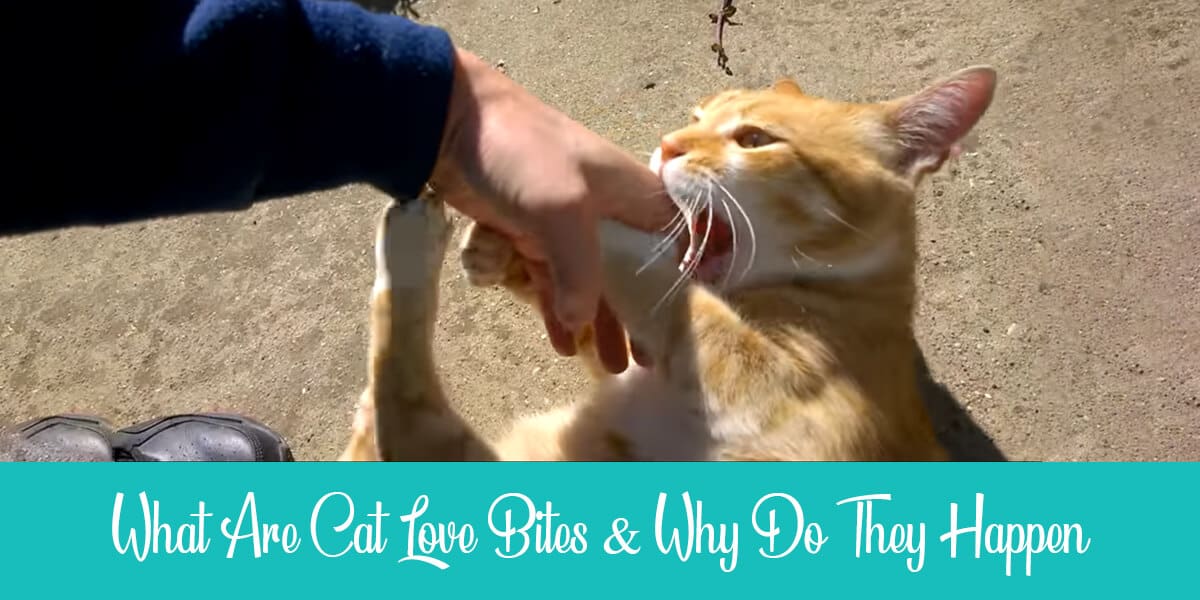There’s no doubt that each and every cat owner out there absolutely adore their feline pet. I mean, we care for them, feed them, play with, and end up taking countless pictures/videos to show off how cute those furballs are!
But try as we may, sometimes we just can’t figure out why cats behave as they do! You know what I’m talking about, the creepy soul-piercing stares, knocking objects off tables for no apparent reason, or our topic today; cat love bites.
If you have a cat, chances are you’ve already encountered the questionable nibbles, especially when you’re just cuddling with your paw buddy and out of nowhere the bite strikes!
In this article, we’ll be discussing 9 possible motives behind your cat’s “loving” bites. So without further ado, let’s get to the bottom of this!
Table of Contents
What Are Cat Love Bites?
First thing’s first, we need to recognize feline love bites for what they are and what they aren’t.
You’d be surprised by the number of cat owners who frequently confuse unfriendly bites with affectionate nibbles. They may be unable to read the body language of their pets or just trying to reassure themselves that their furballs aren’t holding any grudges.
Regardless of your explanation, here’s how you know if your cat is chomping down on you out of “love”:
Love bites typically come along during a cuddling or petting session. Things start off as licks and playful nudges, then they progress into gentle nibbles and nipping.
The major clue here should be your cat doing it without demonstrating signs of aggression. It’s a “love” bite because nothing is mean about it, just a gesture of supposed fondness.
A few distinct features of cat love bites are:
- Your cat doesn’t use force
- The bites don’t break your skin
- The bites are usually accompanied by your cat licking you, kneading your skin, rubbing its cheeks against your body, or similar forms of physical contact
- The bites are almost always directed at your face and hands
Signs They’re Not Cat Love Bites
Obviously, love bites aren’t the only type of bites you could receive from your feline friend, but as we already established, lots of owners mistake one for the other.
It’s not a love bite when:
- The bites cause a significant amount of pain
- Your cat seems to be “punishing” you out of anger
- Before the biting happens, your cat hisses, growls, or have dilated eyes
In such cases where your cat isn’t being very friendly, you should pull the plug on the cuddling schedule, put down your cat, and try to distract it with a treat or a toy until it cools off.
Why Do Cats Bite While Cuddling?
Now we’re talking! The time has come to reveal 9 reasons why your paw pal bites you while cuddling.
1- Playing Around
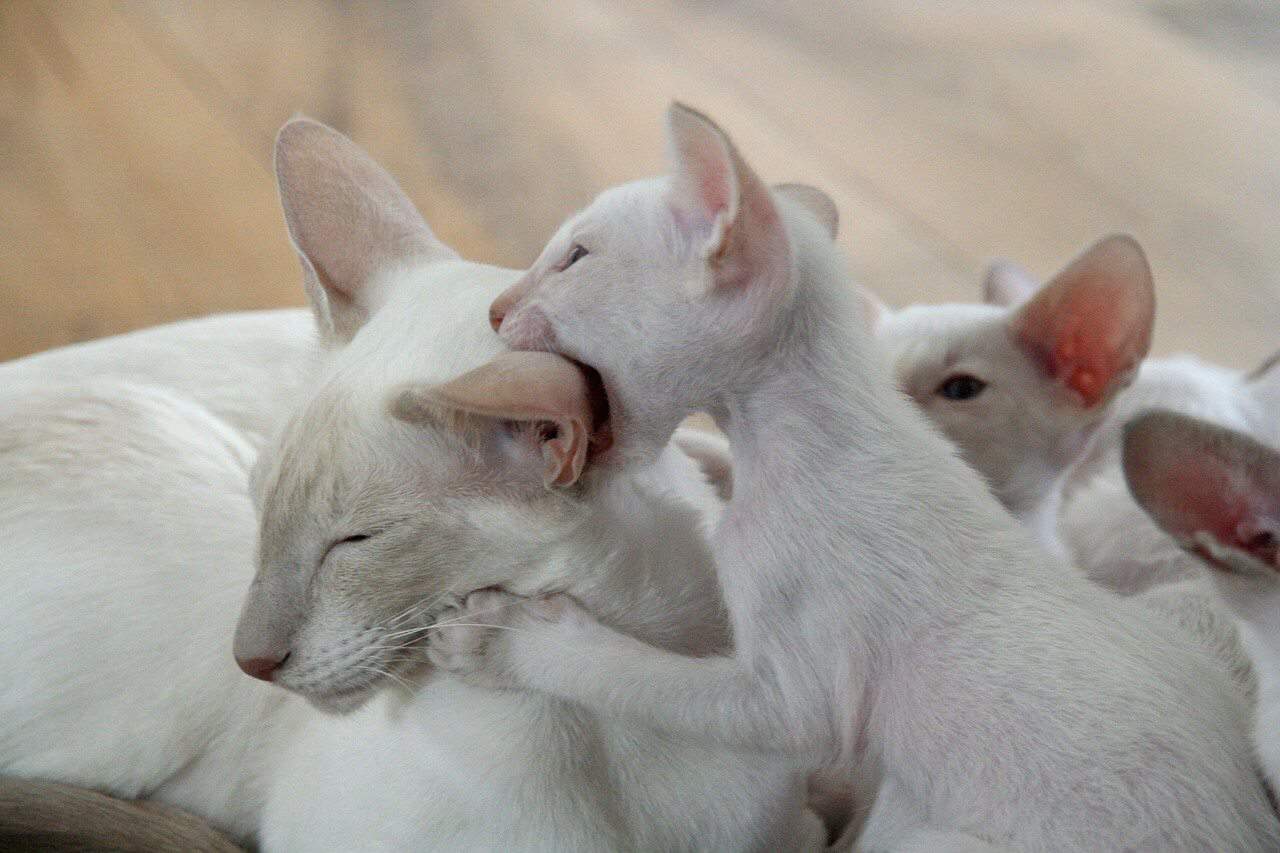
If your cat bites you while cuddling, the act may not necessarily hold any cryptic meanings behind it. In fact, your pet is probably just playing around!
Cats are known for using bites when they play with each other. They regularly nip and nibble to test the waters and learn about the limits of their strength. It’s how they can get an idea of the amount of force they should be using so as not to hurt one another.
Similarly, your cat thinks of you as a fellow feline, so when it bites you in a playful manner, it’s actually a good thing! After all, who doesn’t want their cat to accept them as one of their own?
2- Age
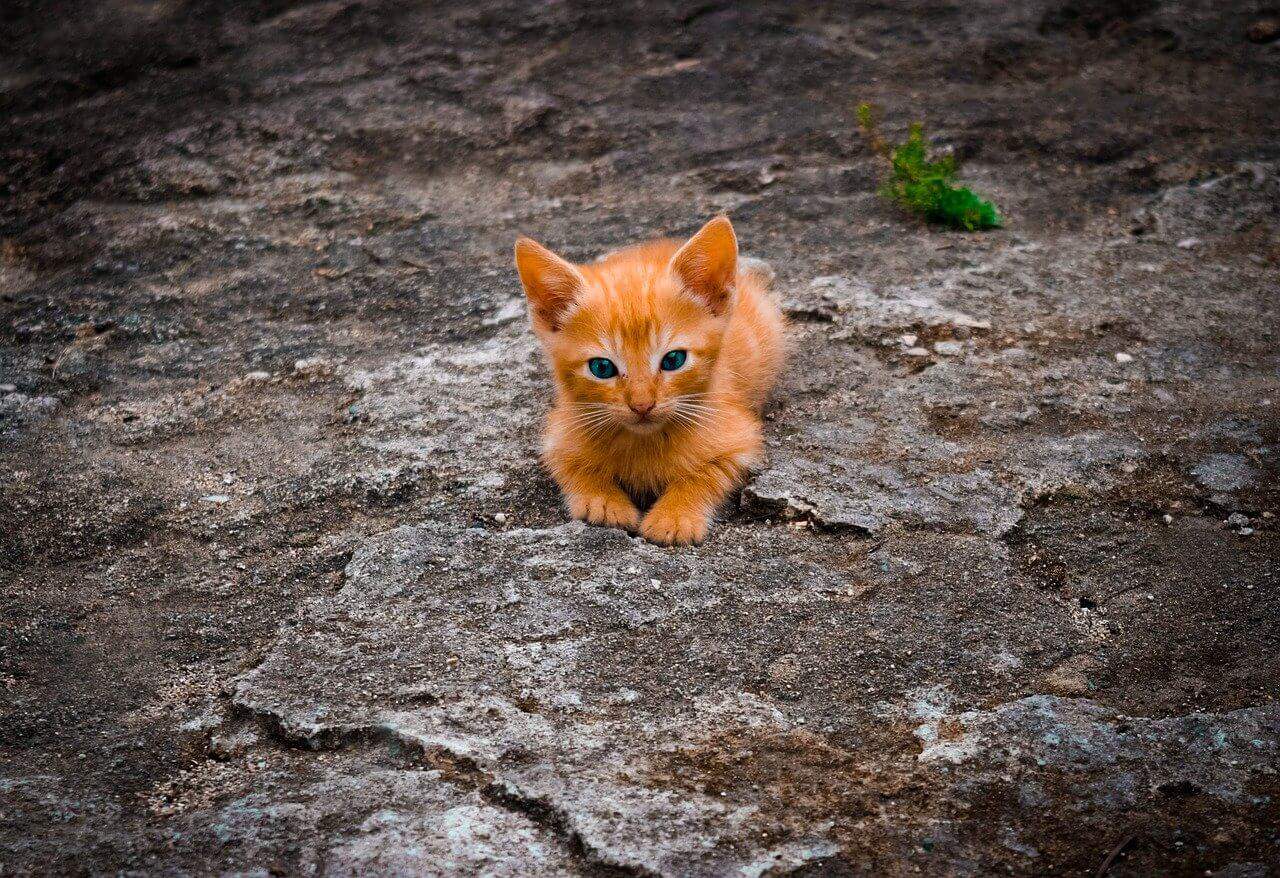
Your cat’s biting habit could be related to its current age. For example, young kittens are extremely likely to scratch or bite at your skin as part of their exploration quests and curious nature.
They’re also incredibly active and playful, meaning that it’s completely normal for them to use everything they got to have fun with you, which of course, includes their mouths and paws.
As your kitten grows to reach around 4 to 5 months old, the nibbling and clawing should generally come to an end, except for an occasional visit.
Looking for a high protein food for your cat? Check this article out.
3- Old Habit
Your cat’s love bites could also be a manifestation of previously acquired behavioral patterns.
Exactly as the saying goes: “Old habits die hard”, your precious feline pet may have learned to use biting as a form of communication in its early kitten days.
Typically, mothers would give their offspring soft nibbles as a way to make them feel loved and safe. This may have stuck on with your cat, so now it’s doing the same thing to show you affection in the best way it knows how.
4- “Holding” You
Cats don’t only learn from their mothers, but also from their owners. They’re highly observant animals, which means they tend to be watchful of your behavior and the things you usually do such as holding and grabbing other people.
Your cat could be trying to “hold” or “grab” you, but they don’t have opposable thumbs so they use the next best thing right after paws; their teeth!
5- Over Stimulation
Cats are particularly sensitive creatures, however, we’re not talking about the emotional meaning of the word rather than the sensory aspect of the situation.
Your cat is constantly subjected to external stimuli, from sounds to visuals, all day long. This makes them quite prone to getting overstimulated as they become overwhelmed by too much exposure to intense stimuli.
In such a case, your touch and cuddles are the last things your cat needs (or even wants), so when you go ahead and make contact, you push them to act out in an effort to stop the extensive stimulation. Acting out may take form in “love” bites.
If you’re wondering how you’re supposed to know when that’ll happen, we’ll tell you that it mostly shows in your feline’s posture and attitude. Overstimulated cats often flick their tails, tuck their ears back and sideways, or have their bodies tensed up.
6- Hyperesthesia Syndrome
If overstimulation seems to be a likely reason for your cat’s behavior, you should definitely have your pet checked out for Hyperesthesia Syndrome, especially if biting occurs suddenly yet on a regular basis.
Feline Hyperesthesia Syndrome, otherwise known as rolling skin disease, is a neurological condition affecting domestic cats. It’s characterized by episodes of agitation (biting and scratching) and skin rippling when touched.
You could be causing you furball pain without even realizing it.
Check out our favorite decorative cat figurines.
7- Seeking Comfort
If your cat is on the younger side of the age spectrum, there are times when it’ll become anxious and in need of comfort. Kittens usually turn to their mothers for such demands, but if she’s out of the picture, their human becomes their sanctuary.
A kitten will nibble on your skin to sort of mimic the act of feeding on its mother, making them feel safe and comfortable. Sometimes older cats share this behavior if they’re very nervous.
8- Petting-Induced Aggression
How would you feel if someone just keeps rubbing part of your back over and over again? Would you feel frustrated? Irritated? Or perhaps you’d get straight-up angry? This picture should give you a pretty good idea of what petting-induced aggression is all about.
Cats have varying opinions when it comes to all the touching and hugging you want to give. Some cats love being held and cuddled, others are willing to go with it just for your sake, and a few don’t stand petting one bit.
That being said, petting-induced aggression can happen to any feline once they’ve had it. For cats, cuddling and stroking may start out pleasant but quickly turn into an annoying experience that should be stopped on the spot. This may explain sudden love bites that are typically not so loving.
9- Marking their Territory
Cats are notorious for being exceptionally territorial animals. It’s part of their feline nature where they feel the need to mark their possessions to fend off other intruders.
If you notice that your cat started exhibiting the biting behavior around the same time you had a new pet addition to the family, it may just be the territorial instinct kicking in.
Also, if you’ve been hanging around other cats, your paw buddy will be able to catch their scents, so it’ll nibble on your skin to spread its own smell over your body.
Think of it as their way of letting other animals know that you’re already taken.
10- Cleaning
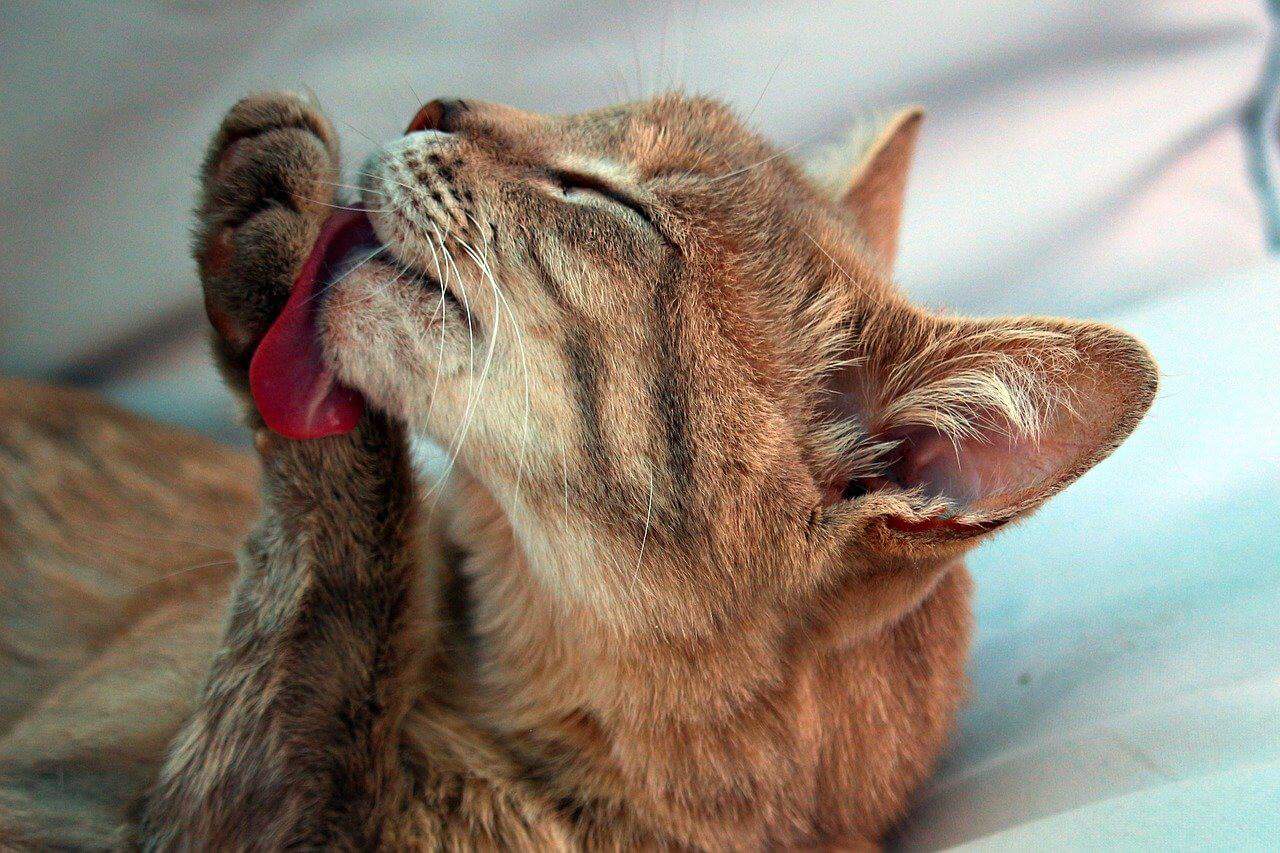
Lastly, your cat may be biting you while bearing good intentions as peaceful as cleaning you up! This actually makes sense because cats are the epitome of maintaining self-hygiene.
While cuddling, your cat can smell any lingering food scent, mistake it for you being dirty, and then proceed to lick you clean where some love bites are bound to appear.
Wrap Up
There you have it, 10 possible reasons why cats bite while cuddling. While some of them are harmless acts of affection or fun, others are more serious and call for intervention. However, it’s up to you to decide whether the love bites should stop or not.
If you choose to end this behavior, remember to apply positive reinforcement methods only where you use treats as rewards for appropriate actions.
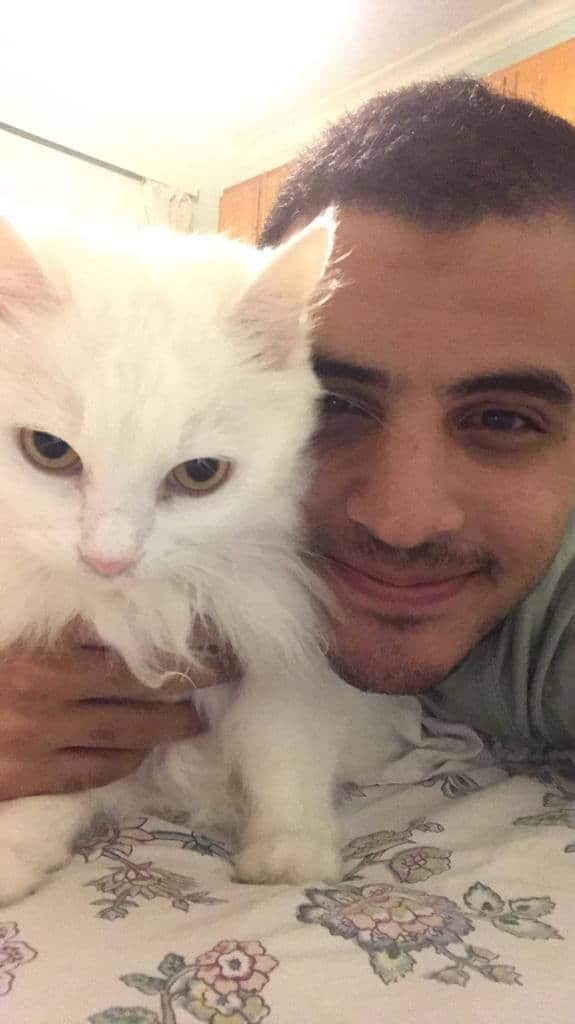
I’ve been living with cats since 2008 and I can confidently say I have more feline friends than humans lol. I currently live with 5 cats in different life stages; two of them are less than one year old, one is 2-ish years old and the oldest two are 9-ish years old. I’ve developed a strong bond with cats over the years and I’m eager to share my experience through this blog. You can learn more about my cats here.

